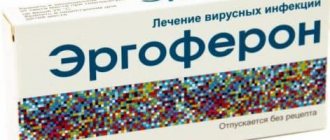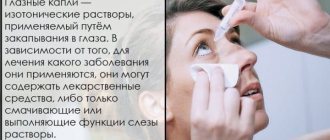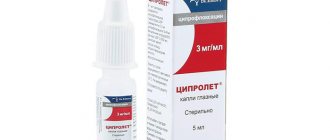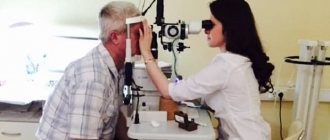When the immune system is weakened, the herpes virus, which is present dormant in the body of most people, begins to become active and manifest itself in the form of specific rashes on the skin. It is impossible to completely get rid of the virus, but there is a whole list of drugs that are used to treat the disease. Antiviral drugs will help reduce the frequency of herpes and quickly cope with its exacerbations.
Antiviral drugs will help reduce the frequency of herpes and quickly cope with its exacerbations.
The role of antiviral drugs in the treatment of herpes
Until recently, herpes infection was treated symptomatically. Advances in recent years in the field of molecular biology have made it possible to more thoroughly study the virus and its behavior, the ability of herpes to replicate, and therefore approaches to the treatment of herpes virus infection have been modified, and progressive drugs have been invented that allow them to act not on the symptom, but on the cause diseases. The antiherpetic effect of such drugs can reduce the severity of the disease.
Antiviral drugs have the ability to affect a wide group of viruses, which includes not only the herpes virus, but also the causative agent of influenza, the human immunodeficiency virus. You can use drugs against herpes and as a prophylaxis against infection, which is extremely important when the body is affected by the herpes simplex virus, which affects the central nervous system.
Forms of drugs
The prevalence of herpes on the human body and the need for therapy in hard-to-reach places and with extensive damage have forced scientists to look for adapted forms of medicines that would be convenient to use in treating the disease. Today it is possible to purchase the most diverse forms of drugs. To treat external manifestations, creams and ointments are used. For severe cases and extensive skin lesions, tablets or injections are recommended, and for ophthalmoherpes, eye ointments can be used.
Ointments
The most commonly used form of the drug in the treatment of herpes is an ointment. The use of external antiherpetic drugs has virtually no contraindications, and most ointments have a minimum of side effects. In addition, ointments act directly on the skin and do not create additional stress on the liver. Ointments against the herpes virus are easier to use than injections, and there is no need to follow a strict dosage schedule, as with tablet medications.
With regular application of herpes ointment, you can eliminate unpleasant skin symptoms - burning, tingling and itching in the area of the rash. Painful sensations go away significantly, and with early treatment of the skin, even at the prodromal stage, there is a chance that vesicles will not appear at all, or the disease will be mild.
Ointments are also effective at the healing stage - herpes cream relieves skin tightness, improves tissue regeneration and promotes rapid peeling of crusts. Among the external medications used are the drugs “Viferon”, “Viru-Merz Serol”, “Bofanton”, “Atsigerpin”. Inexpensive products: oxolinic, hyporaminic, allizarin, tebrofen ointments.
Pills
To treat herpetic infections of various localizations, tablet preparations are used. These dosage forms have their own characteristics. Tablets, like other drugs against herpes viruses, do not eliminate the disease, since infection with the virus is lifelong; it successfully hides in the nervous tissue. However, tablet drugs do an excellent job of treating the manifestations of herpes infection and can alleviate its manifestations. Antiherpetic tablets reduce the duration of herpes, the number of vesicles, lower the temperature and relieve local manifestations of the disease. Tablets are also taken to treat relapses of the disease.
It is more effective to treat herpes with those medications that include immunomodulators - such antiviral drugs are much stronger and are prescribed in severe cases. When ingested in the gastrointestinal tract, the tablets release the active substance, which is quickly absorbed into the systemic circulation and distributed to organs and tissues.
The antiherpetic agent penetrates a cell infected by the herpes virus and blocks its reproduction, after which the virus can no longer infect new cells, since it does not create similar pathogens. Taking pills is allowed only as prescribed by a doctor, as they have side effects.
Among the tablets for labial herpes, effective and inexpensive antiviral tablets Zovirax, Acyclovir, Valtrex and Famvir give a good effect, but for genital herpes they recommend Acyclovir, Flacozid, Kagocel, Herpeval. , "Valtrex".
Injections
Injections for herpes infection are prescribed in cases of severe exacerbation of herpes, if there is a suspicion of systemic herpes or the infection often recurs. Typically, this condition in patients occurs in the complete absence of treatment for the disease in the acute stage, when no drug has resisted the herpes virus.
In this case, the virus replicates at a rapid pace, and it can affect large areas. There is also a need for injections if the patient has reduced activity of immune cells (for example, after organ transplantation) or suffers from other pathologies that affect the body's defenses.
Injections for herpetic lesions are recommended exclusively as prescribed by a doctor, who will examine the patient’s health condition and determine why the herpes has worsened. If necessary, therapy will be purely antiherpetic, immunomodulatory, or combination drugs. Usually, after a course of injections, there is still a need to take additional tablets or lubricate the affected areas externally.
With properly selected powerful injection therapy, recurrent infections do not bother patients for 3-5 years. Usually the treatment is combined - in the first five days (if necessary, the period is extended) antiherpetic drugs are prescribed, followed by immunomodulatory drugs for the same number of days. Among the drugs used are Neovir, Panavir, Allokin-Alfa, Cycloferon, Acyclovir.
Vaccine
The vaccine is an excellent prevention of herpes virus infections. For this purpose, the drug “Vitagerpavak” is used. It is a lyophilisate for administration under the skin. It contains inactive herpes virus types 1 and 2, gentamicin sulfate, sucrose, gelato and formaldehyde. Thanks to the vaccine, the cellular mechanisms of resistance of the human body to these types of herpes simplex virus are stimulated.
It is best to give the vaccine after the initial infection. Because in the first two years a person most often suffers relapses and is dangerous to others. The vaccine is intended to prevent relapses, i.e. the primary infection must disappear at least five days before the vaccine is administered.
Vaccination is not carried out during pregnancy and lactation, for people who are allergic to gentamicin, for people with oncological pathologies, severe infectious diseases, chronic pathologies in the stage of decompensation or exacerbation. Vaccination is carried out in a medical institution, the drug is injected subcutaneously into the forearm area, a single dose is 0.2 ml. In case of severe herpetic lesions, the herpes vaccine is given five times with an interval of one week. Repeated vaccination after six months.
Symptoms
The incubation period during the initial episode of the disease is accompanied by general malaise. Some patients experience low-grade body temperature and external signs of a cold: lacrimation, inflammation of the nasal mucosa, swelling of the face.
Symptomatic signs of herpes on the face are as follows:
- At the initial stage, a papule is formed (a nodule that rises above the surface of the skin). A tingling sensation is felt at the site of future rashes. When palpating the affected area of skin, pain occurs, the intensity of which depends on the location of the herpetic rash and the severity of the inflammatory process. Herpes on the eyebrow is accompanied by numbness in the affected area.
- A herpetic rash occurs, accompanied by severe itching.
- The bubbles burst. A scab forms and falls off over time.
- The virus goes deep into the nerve ganglia of the spinal cord. The risk of reactivation increases in conditions of weakened immunity.
Herpes on the face is characterized by severe itching, redness and swelling. Rashes appear a few days after the onset of the disease.
What does herpes look like on the face?
The clinical picture of herpes in the facial area is as follows:
- The inflammatory process begins with the formation of papules, which then transform into itchy vesicles with transparent contents.
- When the blisters burst, ulcers form in their place. Healing of erosions is accompanied by the formation of a crust.
Herpes in the eye area manifests itself as follows:
- Conjunctivitis. The epithelium covering the eyeball and the inside of the eyelids is damaged. Additionally, redness of the eye mucosa is observed.
- Blepharoconjunctivitis. Simultaneously with inflammation of the conjunctiva, a herpetic rash occurs along the eyelash line, which is accompanied by stinging and pain.
- Keratitis. Characteristic rashes form on the cornea.
- Keratoiridocyclitis is a severe form of viral infection. Blood vessels are affected, and an inflammatory process develops in the cornea.
Herpes in the eye area manifests itself as follows: simultaneously with inflammation of the conjunctiva, a herpetic rash appears along the eyelash line, which is accompanied by stinging and pain.
How to treat herpes on the eye?
The symptoms of herpes on the nasal mucosa differ from the clinical picture of the disease in the area of the nasolabial triangle in the following manifestations:
- The blisters are covered with a thick layer of cells, which resembles an abscess.
- Developed wounds heal in a shorter time. A crust will not form.
A blister that appears in the chin area resembles a subcutaneous pimple in appearance. But a distinctive feature is the severe itching that accompanies the growth of vesicles.
List of antiviral drugs for herpes and selection rules
The list of antiviral drugs for herpes, which are narrowly aimed at treating herpes infection specifically, is actually not that long. However, this is compensated by the variety of dosage forms that are available in these drug names. Let us list the most effective antiherpetic drugs.
Acyclovir
"Acyclovir" - the drug is available in the form of lyophilized powder for infusion at 250, 500 and 1000 mg, in tablet form at 200, 400, 500 and 800 mg, in the form of ophthalmic ointment 3 and 5%, in the form of 5% ointment-cream .
The active component is intended for the treatment of recurrent herpetic infections, herpetic encephalitis, severe chickenpox, and herpes in newborns. It can also be used if a herpes infection has affected the mucous membranes and eyes (ophthalmoherpes).
Can be used in adults and children over 12 years of age, for children under 2 years of age - half the recommended dose. For herpes, 5 mg of the drug is prescribed per kilogram of body weight three times a day. For herpes zoster, the dosage is doubled with the same frequency of administration.
Penciclovir
“Penciclovir” is available both in tablets of 250 mg and in tubes of 5 g. Recommended for acute herpetic infections and herpes zoster. It fights the manifestations of herpes simplex virus types 1 and 2, herpes zoster, and can be used in the treatment of cytomegalovirus and Epstein-Bar. 250 mg should be used three times a day, the skin is treated with cream every two hours. Contraindicated for children under 12 years of age.
Florenal
"Florenal" is a five percent ointment, available in tubes. It is also possible to use 0.1% eye drops and medicated eye films. The drug is indicated for herpetic lesions of the skin and mucous membranes, herpes zoster. Can be used for chickenpox.
Active against herpes zoster, the first and second types of herpes viruses. It is used topically, applied to the skin and mucous membranes, as well as intranasally. Apply 1-3 times a day depending on the severity of the disease. The course of treatment is at least ten days.
Nucleavir
“Nucleavir” is a three percent eye ointment that doctors advise patients with ophthalmoherpes. Available in tubes of 5 g. The drug actively works against herpes zoster and herpes simplex virus types 1 and 2. Shows good results in case of herpesvirus resistance to acyclovir.
The drug is applied topically to the mucous membranes, where it blocks the virus and completely prevents its harmful effects. The drug quickly relieves the inflammatory process, relieves pain, reduces lacrimation, swelling of the eyelids, and redness of the conjunctiva. Thanks to the use of Nucleavir, the risk of relapses is reduced.
Use the drug 3-4 times a day, for severe eye damage - 4-5 times a day. A 1 cm long column of the drug is placed under the eyelid. The course of treatment is 1-2 weeks; if necessary, the drug is used for up to three weeks. Contraindicated in pregnancy and individual sensitivity; studies have not been conducted on children.
Causes
Herpes zoster on the face is caused by external and internal factors.
Herpes zoster on the face is caused by external and internal factors. It most often manifests itself against the background of a decrease in general and local immunity.
Herpes manifests itself against the background of a decrease in general and local immunity, which occurs under the influence of various stress factors:
- hypothermia or overheating;
- excessive insolation (exposure to solar radiation);
- acute respiratory and viral infections;
- severe systemic and autoimmune diseases;
- chronic stress;
- hypovitaminosis;
- malnutrition;
- chronic dermatoses;
- contact with a patient with exacerbation of HSV;
- taking immunosuppressants and antibiotics;
- chemotherapy and radiotherapy;
- dermatological manipulations and operations.
Herpes zoster occurs in every fifth patient over 50 years of age if he had chickenpox in childhood. Reduced immunity in childhood and old age causes the frequent occurrence of herpes zoster in these age groups.
In some cases, the development of the virus develops against the background of severe hypothermia.
Is herpes on the face contagious?
The herpes virus is transmitted through direct contact with rashes on the patient's skin. Moreover, HSV-3 is dangerous for those who have not had chickenpox. The patient is contagious during the period when herpetic blisters appear on the skin. The virus can be transmitted with their contents by getting on hygiene items - washcloth, brush, towel. For women, cosmetics are a dangerous carrier of the virus. It is believed that during the period of remission, herpes on the face is harmless.
New generation anti-herpes drugs
If a person consults a doctor with problems of herpetic rash, the doctor will recommend the latest drugs for herpes. They will not only help cure herpes, but can also be used to prevent herpetic rashes, since studies have proven the sustainable effect of treatment with these drugs.
"Valacyclovir" is an antiherpetic drug, available in the form of 500 mg tablets. Recommended by doctors for herpes zoster, herpes simplex, and chicken pox. It gives a good effect with frequent relapses of herpetic infection. Used in adults and children from the age of seven. The tablets must be taken one twice a day for one week, but if necessary, the course of therapy can be continued for another 3-5 days.
Famciclovir is a drug available in tablets of 125, 250 and 500 mg. A medicine is recommended for herpes zoster. Can be used in children over twelve years of age and in adults. Drink the drug 250 mg three times a day for a week. In severe cases, take 500 mg of Famciclovir three times a day, also for a week.
Antiviral drugs for herpes are used for any form of herpes infection. The course of herpes cannot be ignored, since the disease threatens complications - penetration into the blood and other systems of the body, and ophthalmoherpes can lead to loss of vision. Timely treatment will help to endure an exacerbation of herpes as easily as possible.
Is it worth using for prevention?
Most of the drugs intended for systemic treatment of the disease can also be used for the prevention of herpes, but most often experts recommend the use of these drugs for patients with immunodeficiency conditions and those who experience relapses of the disease more than 6 times a year.
Most of the drugs intended for systemic treatment of the disease can also be used for the prevention of herpes.
Doctors advise everyone else to use immunomodulatory drugs, since the risk of contracting a herpes infection largely depends on the state of the immune system. The list of drugs that enhance the body’s natural defenses and have an antiviral effect includes the following:
- Cycloferon;
- Ingavirin;
- Anaferon;
- Amiksin;
- Genferon;
- Isoprinosine;
- Viferon.
It is necessary to use immunomodulators in a course that lasts on average 7-10 days. In this case, you should strictly follow the instructions for using the antiviral agent and adhere to the recommendations of a specialist.











